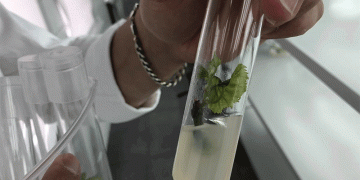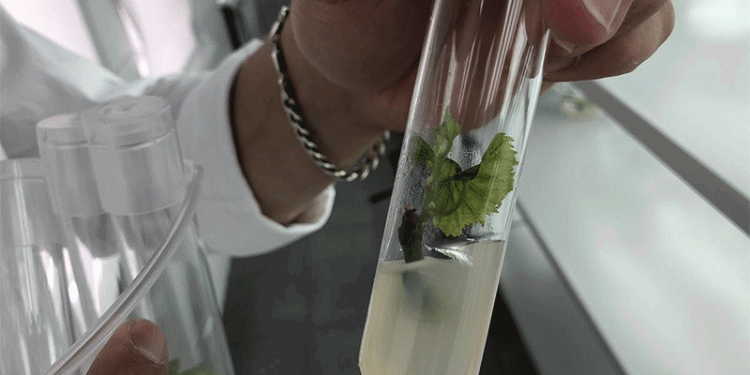In the botanical garden of Belgorod State University, scientists are cultivating thousands of grapevine saplings using clonal micropropagation—a biotechnological method that ensures rapid, virus-free plant reproduction. This breakthrough could position Belgorod, previously considered a “non-grape” region, as a new center for winemaking.
According to Sergey Lisov, an industrial partner of the project, traditional viticulture boundaries are shifting. “Previously, the Rostov region was the northern limit for grape cultivation. Now, thanks to science, we can grow grapes here—even without winter cover or irrigation,” he explains.
The first batch of 1,000 saplings, planted two years ago, is already bearing fruit. The next 5,000 plants are set for distribution, though challenges remain: Belgorod is not yet recognized as a viticultural region, meaning it lacks federal subsidies.
The Science Behind Sterile, High-Yield Grapevines
Lyudmila Tokhtar, head of the plant biotechnology laboratory, outlines the process:
- Sterilization & Propagation: Only 1 out of 10 explants survives initial sterilization. These are divided into micro-cuttings and grown in nutrient-rich media.
- Rapid Multiplication: New plants develop in just 28 days, later acclimatized in greenhouses.
- Virus Elimination: The method cleanses plants of pathogens, producing elite planting material.
While these saplings are more expensive than conventional ones, they serve as foundation stock for high-yield vineyards.
Economic Potential: 10 Billion Rubles Annually
Mikhail Pokrovsky, project leader and director of the Institute of Pharmacology of Living Systems, highlights the economic benefits:
- 15x more profitable than wheat
- 10 billion RUB/year possible if 1,000 hectares of unused land are cultivated
- First commercial wine expected in 3 years, with potential varieties like “Belaya Zvonitsa” or “Kurskaya Duga”
Pokrovsky emphasizes adherence to Soviet-era GOST standards (finger-thick trunks, 20–30 cm roots) to ensure 95% survival rates.
Redefining Agricultural Limits
Belgorod’s biotech-driven viticulture proves that even non-traditional regions can become wine producers. By leveraging drought-resistant, cold-tolerant varieties and scalable micropropagation, the project opens new revenue streams for farmers while reducing dependency on subsidies. If successful, Belgorod wine—once an exhibition novelty—could soon be a commercial reality.































